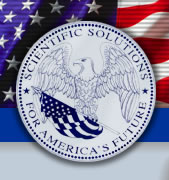 |
 |
 |
||
|
||||||||||||||||||
For further information, contactInstitute of Science, 1000 North 4th Street Phone 641-472-1200 |
Transcendental Meditation for Military Professionals Published in the Air Force Times, 5 April 2004 FINDING WAYS TO HEAL The Air Force Times editorial [“Don’t dismiss PTSD study”] and article [“Can Ecstasy relieve agony for vets?” March 7] on using Ecstasy to treat post-traumatic stress disorder deserve comment. As a brain researcher and a psychiatrist familiar with methylenedioxymethamphetamine (MDMA or Ecstasy) and post-traumatic stress disorder, we were shocked. Why support investigation of a brain-damaging drug when a safe and effective approach is available? As a group, veterans with PTSD experience emotional numbness, anxiety, depression, increased alcohol consumption, insomnia, family problems and increased unemployment, among other maladies. The known effects of MDMA include sleep disorders, depressed mood, anxiety, impulsiveness, hostility, and impairment of episodic memory, working memory and attention. There are strong indications that some or all of these symptoms are caused by MDMA-induced brain damage. Who would want to exchange the symptoms of PTSD for the effects of MDMA? It's time we acknowledge that virtually all drugs have negative side effects and look more closely at the human potential for healing ourselves. Research now shows that stress reduction approaches can be effective for treating hypertension and heart disease, as well as anxiety, depression and substance abuse. Among these approaches, meditation has emerged as most effective for many outcomes. Within the different types of meditation, the transcendental meditation program has been researched most and has shown the largest effects in comparative studies. Twenty years ago, Brooks and Scarano tested this program with Vietnam veterans, randomly assigning those diagnosed with PTSD to either meditation or psychotherapy. The results were clear. Compared to psychotherapy, three months practicing this meditation for two short periods a day brought significantly greater reductions in eight of nine measures, including emotional numbness, anxiety, depression, alcohol consumption, insomnia, family problems, unemployment and a scale for PTSD. If a Veterans Affairs clinician prescribes the TM program as part of a veteran's therapy, it is VA policy that the local VA medical center pay the course fee from its discretionary funds.
Return to The Center for Advanced Military Science. |